Development a key focus in sweeping changes to 2023 Women's WorldTour
Official devo teams, neo-pro category and increased minimum salary scale bolsters foundation of top-tier of women's cycling
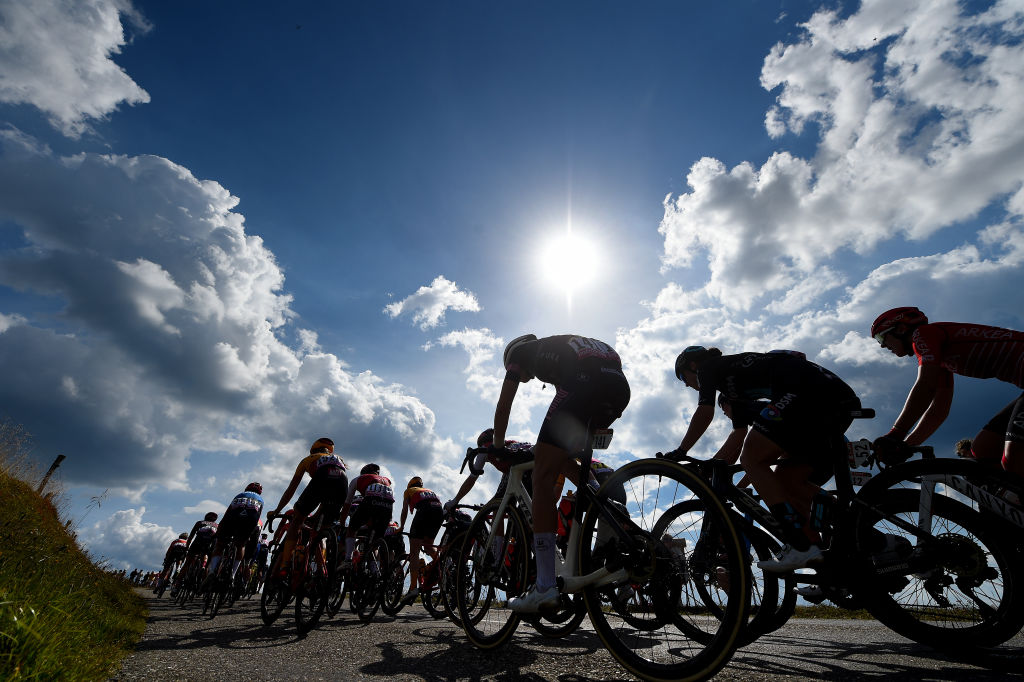
Key changes are set to take place in the Women's WorldTour in 2023 which will see 15 WorldTeams competing in the top tier of the sport. The new regulations focus on increased opportunity and development with the biggest change allowing WorldTeams to register a development team, the introduction of an official neo-pro category, team sizes, and increased minimum salary scales.
Cyclingnews has spoken with many of the sport's top teams as they consider and implement various aspects of the new rules. Not all teams will utilise the development rules immediately, but many view the new structures as having the potential to continue the growth and development of the sport in future seasons.
The UCI published the changes as part of a series of new regulation updates on its website following the Management Committee meeting in September, and they come into effect on November 1, ahead of the new season.
Next year, the number of Women's WorldTeams will increase to 15 with one spot available for a current Continental team to make the jump up to the highest level.
In order for a Continental-level team to acquire the 15th WorldTeam licence next season, it must apply and fulfil the four main requirements: financial, ethical, administrative and organisational. If all of the teams that apply meet these four requirements then the decision will come down to whichever team is the highest placed on the UCI World Ranking.
Three teams have applied for the 15th and last top-tier licence available for next year, with the highest-ranked team among those that have applied being the 12th-ranked Plantur-Pura, under the name Ciclismo Mundial. The other applicants are Ceratizit-WNT, in 15th, and AG Insurance-NXTG's elite team which is currently 17th and has applied under the name AG Insurance-Soudal-QuickStep, reflecting their relationship with Patrick Lefevere's WorldTeam.
Canyon-SRAM devo riders Bauernfeind, Niedermaier step up to WorldTour
Israel-Premier Tech moves into title role at Women's WorldTeam and new development squad in 2023
Persico and Arzeni - The connection between UAE Team ADQ and Valcar Travel & Service
AG Insurance-NXTG build three-tier women's development programme in 2023
Due to their ranking, Plantur-Pura are in pole position to take the final Women's WorldTeam spot for 2023. "We applied for it, and we have the opportunity; the standings and the points are looking good," a representative of the team told Cyclingnews.
The latest race content, interviews, features, reviews and expert buying guides, direct to your inbox!
Valcar Travel & Service is actually the top performer on the world ranking among those teams that don't already have WorldTeam status, currently in ninth, but they have indicated to Cyclingnews that they would not apply to become a WorldTeam.
Departing director Davide Arzeni will join UAE Team ADQ as a director in 2023 but told Cyclingnews that it was a tough decision to depart Valcar Travel & Service after helping to build the team, alongside Valentino Villa, into one of the most successful development teams in the world. However, he indicated that he hoped Valcar Travel & Service would become a development programme for a Women's WorldTeam in future.
"I just hope that these development teams have important help from all over the cycling world," Arzeni said. "Teams like Valcar, or looking in other countries like Parkhotel Valkenburg, are a mandatory step for a rider who aspires to be a top in the Women's WorldTour. The numbers show it. The growth must be gradual."
The new rules governing the WorldTeams could make it more feasible for development teams to provide opportunities to up-and-coming riders. It will allow top-level teams to create their own development teams or the potential to partner with existing development teams, which would create a clearer pathway to reach the highest level of the sport. In addition, the rules give opportunities to up-and-coming riders through the new neo-pro status, all beginning as soon as next season.
Development teams
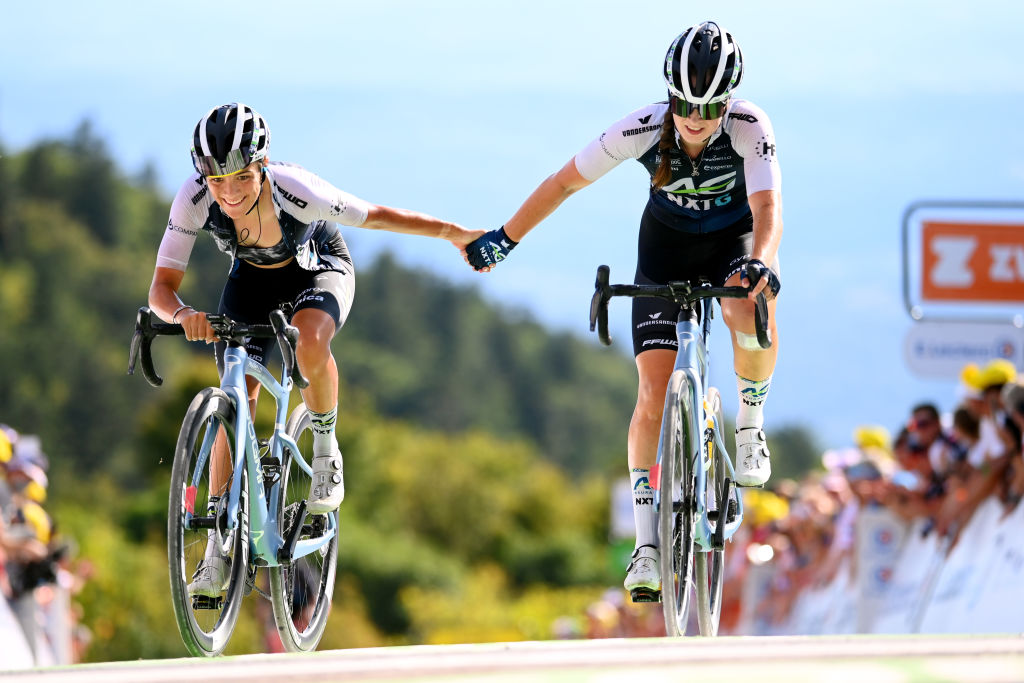
The new regulations for the Women's WorldTour appear to open more doors for increased development opportunities in the pathway to the top tier of women's cycling by allowing existing WorldTeams to register their own and/or partner with a development team that has a Continental licence.
The two teams will, however, need to share certain qualities, such as having the same paying agent or main partner and having a common identity, (at least part of the name and design of the jersey), according to Article 2.13.218
Canyon-Sram is leading the way by creating a development team under its main umbrella this season with the Canyon-Sram Generation Development Team, which competed in many of the international calendar events this season. It has been announced that two development riders Ricarda Bauernfeind and Antonia Niedermaier will move up to the WorldTeam next year.
"We are proud that in the first year of existence of Canyon-SRAM Generation, the riders have developed from being competitive in national competition races into world-class athletes," said Team Manager Ronny Lauke.
There are other links between programs currently in place with EF Education-TIBCO-SVB funding Fount Cycling Guild as a women’s development team this year, providing support through the Silicon Valley Cycling Foundation. Although they are not officially partner programmes under the UCI's registration, but the possibility now exists under the new rules.
The hopes of one of the most prominent development teams in the world, Valcar Travel & Service, to become a feeder team to an existing WorldTeam could also become a reality under the new rules beginning next year.
In addition, AG Insurance-NXTG will grow into a three-tier women's cycling programme that will see an elite team added to its existing under-19 and under-23 squads next season. Eight riders of the current under-23 team will move up to the 16-rider elite roster which has applied for a WorldTeam licence and also signed big names like Ashleigh Moolman-Pasio.
“With our three-part structure, we offer young talents every opportunity to make their cycling dreams come true and to develop sustainably in a professional environment. With real opportunities to grow from the base to the top: from the U19, over the U23 to the elite team. To see half of the current U23 team step up to the elites is perhaps the biggest victory of the 2022 season, “ said AG Insurance CEO Heidi Delobelle.
Israel-Premier Tech has also taken over as title sponsor of Roland Cogeas Edelweiss Squad and has announced a two-tier team that will include Israel-Premier Tech Roland WWT and Development teams next year.
As women's cycling continues to grow, more and more WorldTeams are implementing, or at least considering the benefits of registering a development team or partnering with an existing development team, as a way to cultivate further development and growth with a stronger foundation.
Fluidity
The new rules appear to allow for some fluidity between the WorldTeam and development programmes as well, which offer younger riders and teams the opportunity to learn from their more experienced teammates in the WorldTour.
A key point is that riders registered with a development team may participate in ProSeries (a maximum of four development riders) or Class 1 (a maximum of two) events with the related Women’s WorldTeam subject to limitations, according to Article 2.1.005 bis.
The reverse also appears to be permitted, whereby riders registered with the Women’s WorldTeams may participate in class 1 or class 2 events with the team's related development team, also subject to limitations (only one or two riders per race roster) in accordance with the new rules.
However, both teams will not be permitted to participate in the same event at the same time, according to Article 2.2.001.
The points acquired by a trainee or a development rider while racing with a Women's WorldTeam will remain with her regular team.
Likewise, a rider of a Women’s WorldTeam who takes part in an event with the registered development team is still considered a member of her usual Women’s WorldTeam and thus points remain with her primary team, according to Article 2.10.014.
Neo-pro status, team sizes
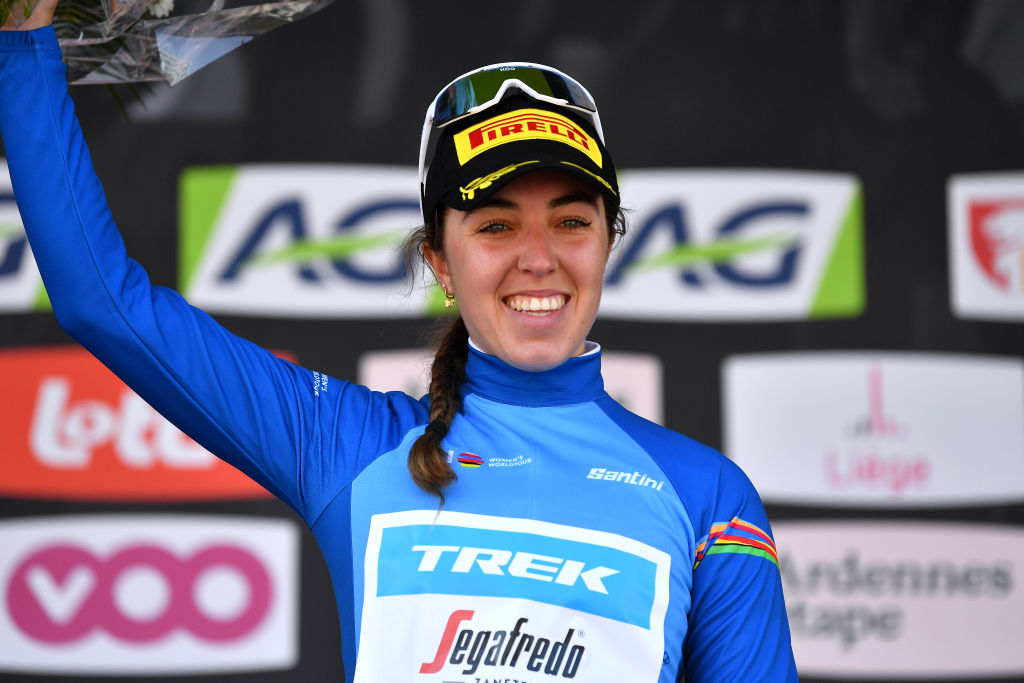
New to the women's cycling structure next year will be a new professionals (neo-pros) category, and the ability for Women's WorldTeams to add a maximum of two registered neo-pros to its roster.
This could create more opportunities in the future for developing riders while also allowing a Women's WorldTeam to expand from the maximum roster size of 20 to 22 riders, according to Article 2.13.166 bis.
If there are no neo-pro riders under contract to the Women's WorldTeam, the maximum available spots on a roster remain at a maximum of 20 riders.
Movistar team manager Sebastián Unzué told Cyclingnews that, even if many teams currently only hire 13-15 riders, this was an important step for the future and an avenue that will allow teams to invest in younger riders in several years when he predicts that roster sizes could increase toward 20.
"I won’t be doing it for next year, but it is something in the future that we will be using. To have a special category of neo-pros, like they have for the men, is a step that we also needed to make," said Unzué, who also said Movistar could consider adding a development team in the future.
"For teams, the fact that those riders will have a neo-pro salary makes it more logical in many aspects because some of those young riders might not be ready to commit 100% to the team because maybe they are students at the same time.
"I think it’s good to have that middle step and have them in the team as neo-pros. If we open up an opportunity to sign young riders every year, it is an incentive for us to sign and bet on young talent."
The maximum number of riders permitted on a Women's WorldTeam jumped from 16 to 20 this year. However, the top-tier teams have, and likely will keep, their roster sizes at between 13 and 15 riders, at least for now.
Unzué noted two main areas of concern that need to be addressed when it comes to increased roster sizes; heightened financial requirements and the number of riders on the market.
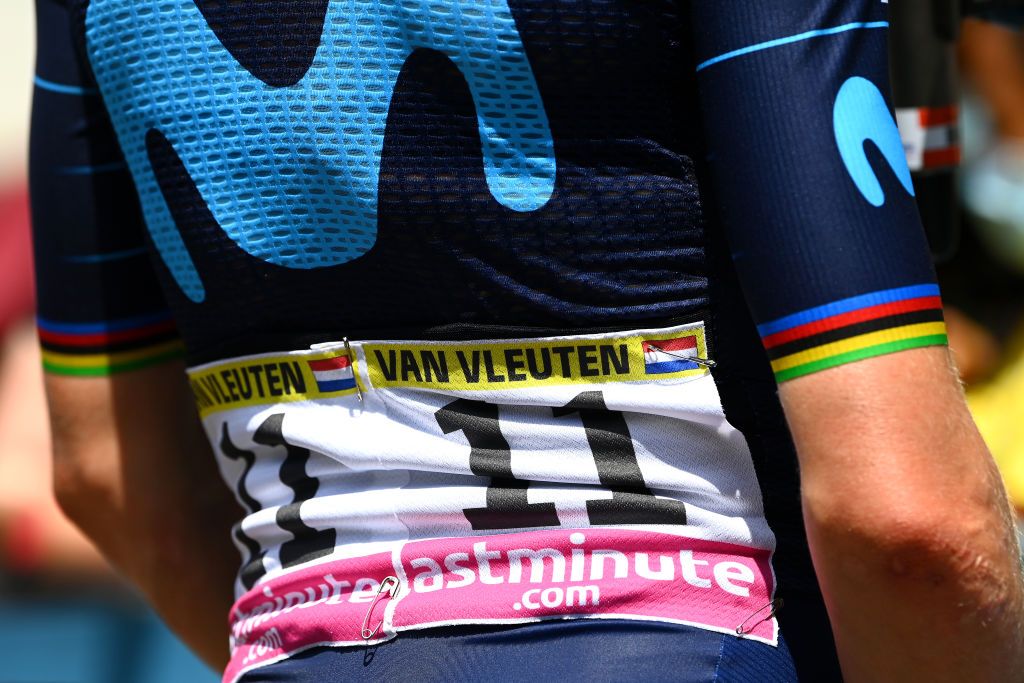
Unzué said that women's teams, including his team Movistar, could not fill a maximum roster of 20 riders this year due to financial strain or perhaps not enough riders available to fill the spots.
"The way they structured the new neo-pros is fine. The maximum number of 20 riders, I’m not complaining about it, but in my opinion, it is too high, for right now. Right now, if each one of us had 20 riders on a team, honestly, I don’t think there would be enough riders to fill those teams," Unzué said.
"20 might be a really high number, for the moment, but over the next few years, I’m sure the number of riders that will come into the peloton is going to increase. Right now, it seems like 20 riders [per team] are too many. Next year, Movistar will have 15 and budget-wise, with all the requirements, that’s enough.
"20 or 22 riders, those are big numbers, and I hope we get to it in a few years, but right now that’s a lot. I’m not too worried about having two extra spots if I sign two neo-pros because I’m not planning on getting to 20 riders on the roster, in the next year at least. Maybe in three years, it will be a different story and that will be very useful."
Seven-rider teams at six-day stage races is a stretch
The number of riders starting per team at certain stages races is about the change.
One of the new rules stipulates that for stage races of five stages and less of the UCI Women’s WorldTour, the organiser can set the number of starting riders per team to 6 or 7.
However, for stage races of six stages and more of the UCI Women’s WorldTour, such as the Giro d'Italia Donne and Tour de France Femmes, among others, the number of starting riders per team is set at seven, according to Article, 2.2.003.
Some teams struggled to meet the six-rider starting team sizes last year and this year, particularly as the international calendar has grown.
The growth of the sport is undeniable with an increasing number of race days on the Women's WorldTour, but with team sizes remaining at 13-15 riders, Unzué felt that the teams could struggle to field enough riders for all the races next season.
"It’s difficult. The problem with success, sometimes. It's a problem that we have but a problem that we need to deal with. There have been a lot of new races, more stage races, the parcours are getting harder, races are getting longer, everything is changing really fast," he said.
"In some aspects, we find ourselves in an unbalanced situation. We have a million races now, really good and top-quality races with good conditions and well organized, but we have the problem that teams aren’t able to be at the start of these important races, not even with a full six-rider team."
Increased salary scale
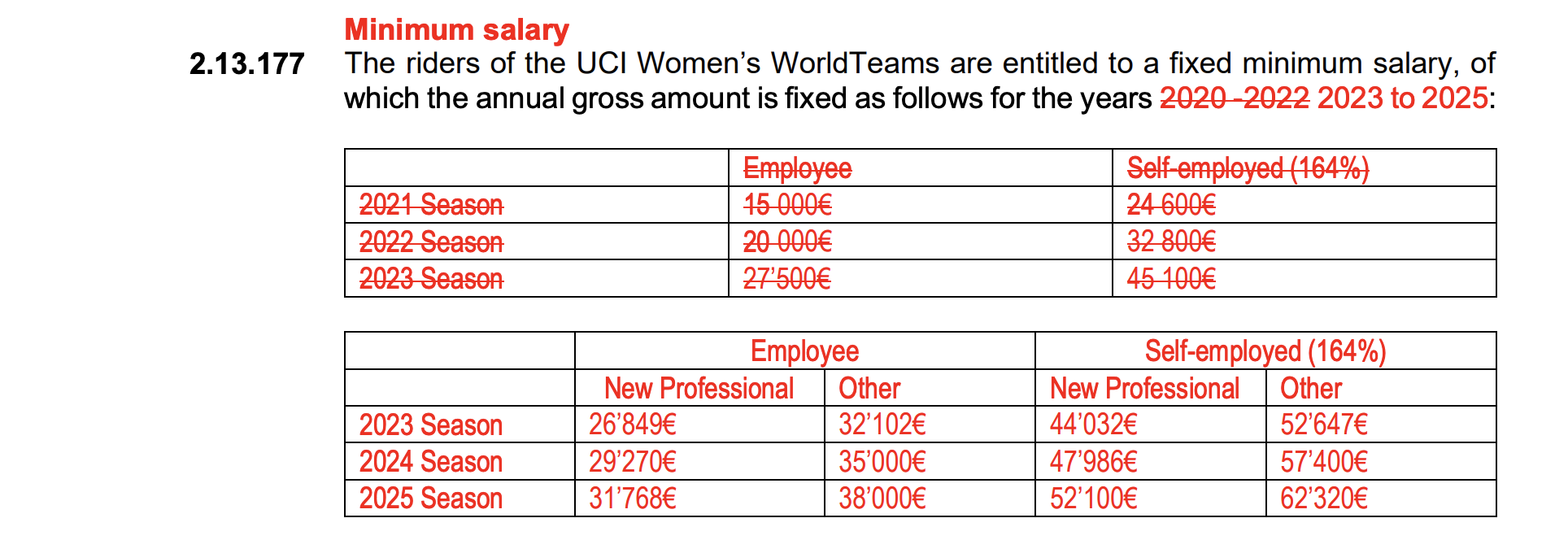
The salary structure has changed with increases to the annual wages, and it will now include a neo-pro minimum salary, which is set at a slightly lower wage than the minimum salary for a rider on the Women's WorldTour.
The registered neo-pro riders' salary will be set at €26,849 (employed) / €44,032 (self-employed) in 2023, increasing to €29,270 (employed) / €47,968 (self-employed) in 2024, and then to €31,768 (employed) / €52,100 (self-employed) in 2025, according to Article 2.13.177.
The UCI introduced minimum salaries for Women's WorldTeams in 2020 and those are set to increase next year to €32,102 (employed) / €52,647 (self-employed), and increase again in 2024 to €35,000 (employed) / €57,400 (self-employed), and then in 2025 reach €38,000 (employed) / €62,320 (self-employed).
There are currently no minimum salary requirements for the 49 second-tier Women's Continental Women's Teams that are registered with the UCI and compete on the UCI's International Calendar. Many teams have smaller budgets and do not provide a salary or stipend. However, some second-tier teams pay their riders a salary.
Still, there is a widening pay gap between the Continental Teams and WorldTeams, according to the most recent survey conducted through The Cyclists' Alliance, and nearly half of women pros still can't make ends meet with income from racing.
Its annual survey revealed that only 15% of female professional cyclists receive an income of over €20,000 outside of the Women's WorldTour (WWT) and almost half of the peloton – 46% – rely on supplemental income from second jobs, family support or scholarships.
The survey included 31 questions that covered employment and income, team support and culture, work and education, professional support, team culture, and membership of the TCA. The survey was completed by 124 female professional cyclists; 121 compete on the road, 22 track, 13 cyclo-cross, eight in both mountain bike and e-sport, and one in BMX. In addition, 44% of the respondents are from the Women's WorldTour teams.
The TCA urged the UCI to consider the increasing wage gap, particularly since the survey found that female cyclists cited "financial reasons" as the main reason for leaving the sport of professional cycling earlier than planned.
Governments are beginning to implement rules of their own, however, as noted in Spain where all eight women's Continental Teams registered in the country could face minimum salary requirements of €965 monthly, plus mandatory team sizes, staffing and infrastructure regulations in 2023.
The Royal Spanish Cycling Federation (RFEC), confirmed to Cyclingnews, that it would request these teams to register under the nation's Social Security and Minimum Interprofessional Salary.
Some teams, especially those with smaller budgets, have noted that it could be a financial strain to meet the new requirements and that they are unrealistic. The heightened financial requirements mean that some teams could look to apply for licences outside of Spain. Others have said it's a step in the right direction.
Unzué told Cyclingnews that while working on the structures and increased salaries of the WorldTour is important, the sport needs to make a bigger effort to support its foundation of club, development and Continental teams.
"There is an unbalance and we might have taken some steps too fast, which is not bad because it’s part of the positivity that we had around women’s cycling over the last few years. But we need to work harder on the base and the grassroots because we depend on those smaller development teams to keep feeding the WorldTour teams.
"Increased salaries and improved working conditions in the WorldTour are important, but I think there is work that needs to be done in other areas that we have not placed a focus on; working with a grassroots and the smaller teams that we depend on in the end," he said.
"We need to try to do some things differently and work harder and focus on areas that sometimes seem irrelevant to the stakeholders, but which are very important, like the smaller teams, grassroots teams, clubs, because we depend on them."

Kirsten Frattini is the Deputy Editor of Cyclingnews, overseeing the global racing content plan.
Kirsten has a background in Kinesiology and Health Science. She has been involved in cycling from the community and grassroots level to professional cycling's biggest races, reporting on the WorldTour, Spring Classics, Tours de France, World Championships and Olympic Games.
She began her sports journalism career with Cyclingnews as a North American Correspondent in 2006. In 2018, Kirsten became Women's Editor – overseeing the content strategy, race coverage and growth of women's professional cycling – before becoming Deputy Editor in 2023.